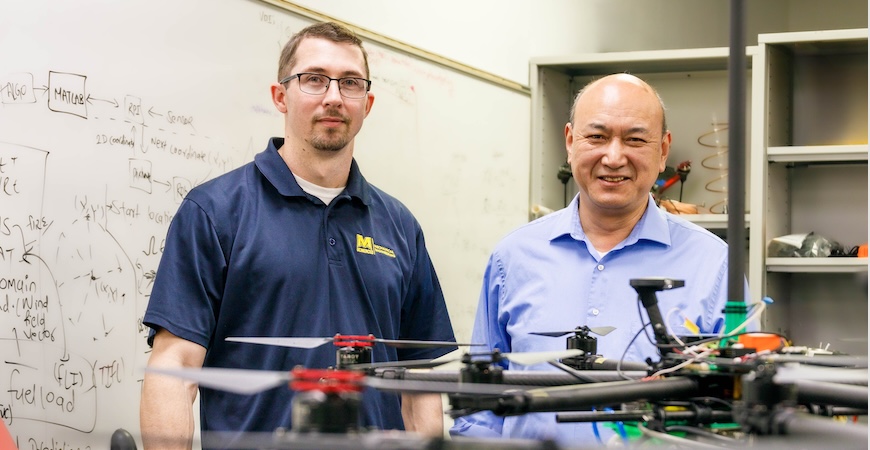
UC Merced researchers are taking part in a comprehensive, multi-agency effort aimed at efficiently measuring and mitigating methane emissions.
IBM and Los Alamos National Laboratory are leading the effort, which earned a $20 million award from the U.S. Department of Energy in December.
UC Merced's team, led by mechanical engineering Professor YangQuan Chen and postdoctoral researcher Derek Hollenbeck, will use the Center for Methane Emissions Research and Innovation (CMERI) to help make boots-on-the-ground measurements in California well as drones equipped with laser spectrometers tuned for methane. UC Merced's share of the funding is roughly $900,000.
Human-influenced sources that emit methane include landfills, oil and natural gas systems, agricultural activities, coal mining, stationary and mobile combustion, wastewater treatment and certain industrial processes. According to the U. S. Environmental Protection Agency, methane accounts for about 11% of greenhouse gas emissions worldwide and is more than 28 times as potent as carbon dioxide at trapping heat in the atmosphere over a century.
In addition to UC Merced, other participants in the 44-month program are Butterfly Photonics, the University of Utah, Utah State University, New Mexico Tech, EarthDaily Analytics and SkyCam Aviation.
According to the Department of Energy, the partners plan "to demonstrate a superior methane emissions characterization process using transformative, near real-time measurements, high resolution daily satellite data, and a novel AI-enabled data fusion approach to significantly speed up and improve the accuracy of inversion modeling over the Western United States."
These measurements will inform EPA programs such as the Inventory of U.S. Greenhouse Gas Emissions and Sinks and the Greenhouse Gas Reporting Program, as well as assist state, tribal and industry mitigation efforts. Team members plan to share data with oil and gas operators to help leak detection and repair practices.
The project also will engage students and community members from disadvantaged areas.
Hollenbeck said the team is ironing out the details of where it will test, but will work with local authorities or companies to gain access to sites in the San Joaquin and Alaska basins.
Taking part in the DOE project has several positive implications.
"It provides the student researchers with the skills and training to go out and make the measurements happen in a growing engineering field," Hollenbeck said. And the measurements and lessons learned will be incorporated into coursework at UC Merced. "The measurements will play a larger role for helping to provide policymakers and operators with high-quality and timely feedback to manage methane emissions across the board."




 Public Information Officer
Public Information Officer

